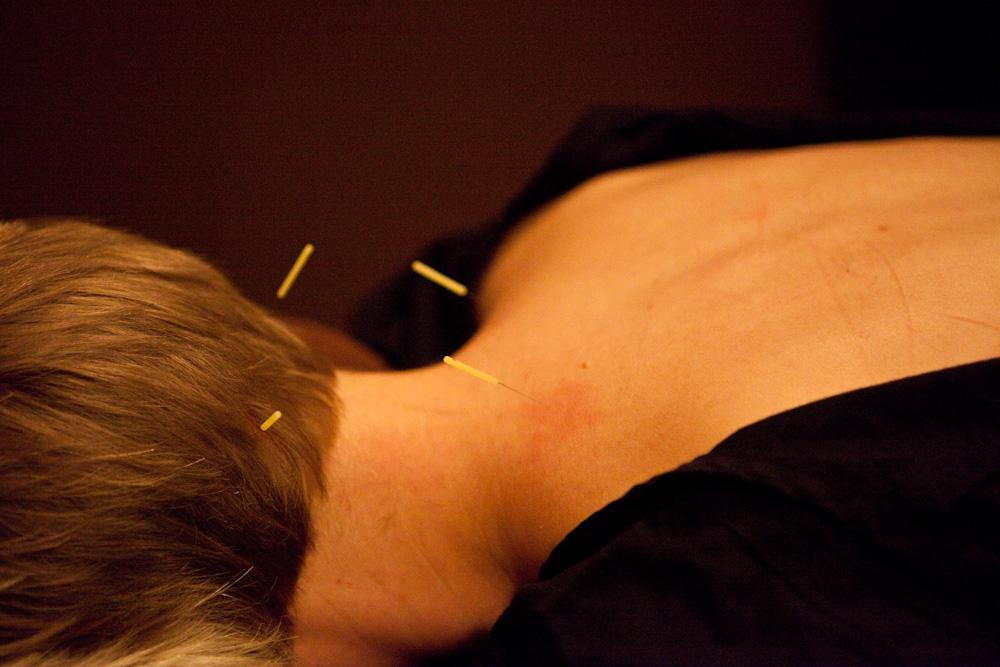
The most common two questions we get on acupuncture are 1. How does it work? 2. Does it hurt?
We'll answer the 2nd question first, almost never. If we get close to a nerve or blood vessel, it may feel like a mosquito bite or slightly burn, and we simply remove the needle and reposition to a point of no pain. Most people are completely shocked when start that they cannot feel the needles, or they noticed a pressure, or warming feeling, but it is not painful and in fact, they typically report it be soothing and relaxing.
The answer to how it works is more complex. Going through acupuncture training teaches students that there is an energy that runs through your body that powers everything, this is called Qi (pronounced chee). If Qi is unbalanced, meaning too much in one area or not enough in another, then you have symptoms stemming from that unbalance. That is a very basic understanding of acupuncture in a traditional sense. While this is good enough for some people, others want a more 'western' explanation.
One of the older explanations dates back to when acupuncture was first brought to the United States. In 1974 research proved acupuncture stimulates the body to release its own pain killing nerve signaling molecules, which are neuromodulators.....google that term and you can read for awhile :)
Recent research indicates that acupuncture changes how we perceive pain by affecting the emotional part of your brain, the limbic system.
Acupuncture is known to break up muscle trigger points. A trigger point is basically a muscle that is contracting and shortened, so it feels "tight" or like "a knot". When we take our needles and bust these up, blood comes rushing into the area and normalizes the chemicals around the muscle causing it to contract.
Acupuncture slows down or stops pain from traveling along its 'pathway' to and from the brain through the spinal cord. There are specific nerve fibers that carry pain signals, think of them as a specific telephone line that is only dedicated to delivering pain signals. When this specific 'pain telephone line' gets to the spinal cord there are other nerve fibers that can slow down or even stop that transmission. Acupuncture applied near a painful area can stimulate these other nerve fibers called alpha delta fibers which in turn, reduces or kills the pain signaling.
Acupuncture delievered at a painful spot increases blood flow to the area dramatically, which flushes the area which oxygen rich blood thereby restoring normal function around the area of pain, ending up in reduced pain and sensitivity.
SO, when discussing acupuncture, these are some of the more common western explanations for how this works. Taking it a step further, which would be an entirely different discussion, would be to discuss the effect the individual practitioner has on the process. In other words, does the person doing the acupuncture have an effect. There is some evidence to indicate that it might. For example, have you ever been treated by someone who you could tell was somewhere else in their mind? Did this affect how you did with their care? Many people think it does. Again, a different topic for a different day. Thanks for reading!
Dr. Tracy
